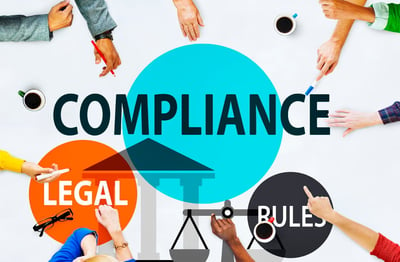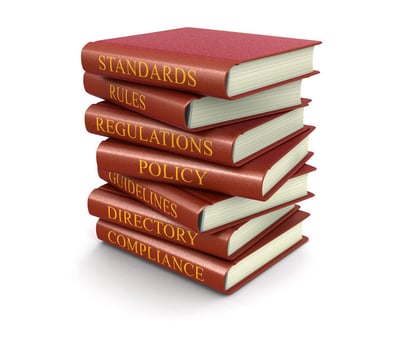10 key practices to ensure customs compliance
Whether your goods are crossing the Canadian border or the U.S. border, avoiding the glare of Customs is every importer’s ultimate goal. Customs compliance and a strong internal compliance program is a top priority.
Compliance involves being aware of and abiding by the laws and policies regulating cross-border trade. This means knowing what is required by Canada Customs (CBSA) and U.S. Customs (CBP). For a great overview on compliance, take a moment and check out our video, What is customs compliance?
 Customs compliance isn’t a one-time thing; it’s an ongoing process of diligence, reasonable care, and accountability. Developing an in-house corporate compliance program is an essential part of your business.
Customs compliance isn’t a one-time thing; it’s an ongoing process of diligence, reasonable care, and accountability. Developing an in-house corporate compliance program is an essential part of your business.
Your staff should be proficient in the following 10 key compliance processes:
1. Know the restrictions and requirements.
Determine if the goods you’re importing have any restrictions of specific government requirements in Canada and/or the U.S.
2. Ensure your tariff classification is accurate.
Accurate product classification is critical for customs compliance, especially when it comes to special trade programs, which are often subject to more scrutiny. Learn more about tariff classification here.
3. Be accurate with your valuation.
There are six bases of appraisement to determine the value of imported goods. The first and preferred method is transactional value. To determine the transactional value for goods imported into the U.S. check out this PDF and for Canada click here.
4. Be proactive with vendor paperwork and information for your broker.
Your vendor needs clear instructions on how to prepare customs paperwork to ensure that it consistently includes a clear description of all shipped goods, part and/or SKU number, verified tariff classification number, and applicable terms of sale.
Provide shipment details to your broker as early as possible to ensure that they have enough time to contact you if they have any questions or issues.
 5. Be prepared with permits.
5. Be prepared with permits.
Make sure that any necessary permits and licenses are provided for clearance of your goods before importation.
6. Ensure that your goods qualify for special trade programs.
If your goods qualify for a free trade agreement or other trade program, make sure that you have a valid certificate from your vendor at the time of importation to benefit from reduced or eliminated duty.
Please note that Customs often scrutinizes goods like these, so make sure your product has been qualified and that you can back up your claim with proper process, justification, and documents.
7. Be mindful of Special Import Measures Act (SIMA) and antidumping/countervailing duties.
Antidumping/countervailing duties (ADD/CVD) may be enforced more and more rigorously in the coming years. Get up to speed with how SIMA is affecting importers and stay current on goods currently subject to anti-dumping or countervailing measures.
8. Reconcile, review, and audit.
- When you receive your shipment, reconcile your goods with the purchase order and the commercial invoice, and be sure to notify your customs broker if there are any discrepancies.
- Review customs entries, paying special attention to tariff, value, origin, and pieces/weight.
- Conduct internal audits to verify whether all receipts have been customs-cleared, paying attention to shipments that maybe have been received at reception rather than receiving.
9. Correct errors.
Mistakes happen. Make sure to identify any errors and submit adjustments to customs authorities within 90 days.
10. Keep good records.
Maintain accurate books and records for seven years (six years, plus the current year).
If it’s time to tighten up your systems for better customs compliance, connect with our experienced team of professionals today. Our Customs Consulting team is ready to help.

